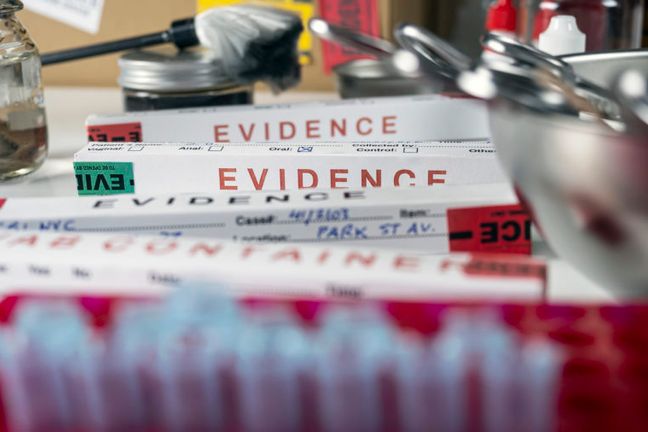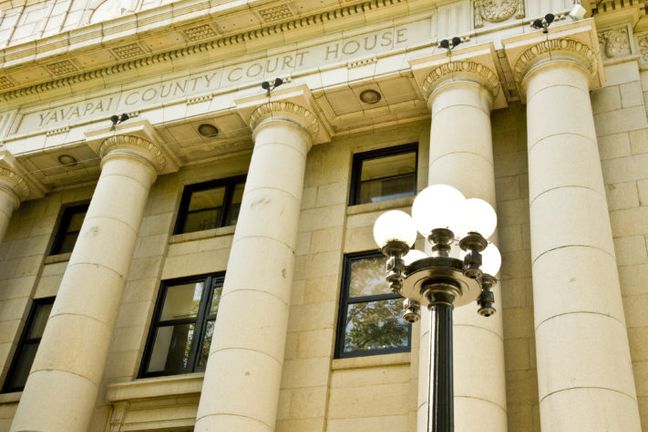Could a Medi-Cal lien for recovery of advanced medical expenses be pre-empted by federal law? This was the issue recently decided by the Second District Court of Appeal in L.Q. v. California Hospital Medical Center.[i] The case involves the conflict between federal and state law on whether a state’s Medicaid program can legally claim a lien against a beneficiary’s personal injury settlement without violating the anti-lien provision in the federal Medicare Act. The Court of Appeal reversed the trial court and held the state Medi-Cal lien was valid, allowing recovery of the portion of the settlement proceeds to be attributable to past medical care paid for by Medi-Cal.
-
1. Background Facts
Plaintiff was a severely disabled child who suffered catastrophic injuries during childbirth. Plaintiff was a Medicaid recipient whose medical treatment was paid through California’s Medicaid program known as Medi-Cal. Plaintiff sued certain medical providers for professional malpractice. Plaintiff settled her claims for the sum of $3 million. The California Department of Health Care Services (“DHCS,” the state agency which administers Medi-Cal) asserted a lien against the settlement in the amount of $477,264, the amount Medi-Cal had paid for plaintiff’s treatment ($649,289) less its statutory share of attorney fees and costs.
Because plaintiff was a minor, the parties were required by law to obtain court approval of the settlement, which included approval of the Medi-Cal lien asserted by DHCS. The trial court approved the settlement and ordered $649,289 to be placed in trust to satisfy the lien. Plaintiff then filed a motion to determine the DHCS lien. Plaintiff argued the federal Medicaid Act precluded states from imposing liens on judgments or settlements received by Medi-Cal beneficiaries. DHCS opposed the motion, arguing it was entitled to recover the reasonable value of medical care provided, reduced by its share of fees and costs pursuant to Welfare and Institutions code §14124.76, and the Medicaid Act required it to seek reimbursement.
The trial court granted plaintiff’s motion and denied DHCS recovery on its lien. The trial court reasoned the plain language of the anti-lien provision of the federal Medicaid Act bars a lien against a beneficiary for medical expenses properly and correctly paid by DHCS. The trial court reasoned one cannot comply with both regulations simultaneously, so the state law must be overruled. DHCS appealed.
-
2. Analysis
- a. Federal Medicaid Act
The Court of Appeals analyzed relevant provisions of the federal Medicaid Act. The court explained when a state such as California elects to participate in the federal Medicaid program, in consideration of receipt of federal Medicaid funds, the state must adopt a plan in conformance with federal law. The state plan must have three essential provisions: (1) an assignment clause requiring beneficiaries to assign to the state any right to payment for medical care from any third party; (2) an acquisition of rights clause providing the state steps into the shoes of the beneficiary by acquiring the rights to third party recovery; and (3) a reimbursement clause requiring the state to actively seek recovery from responsible third parties.[ii]
The Medicaid Act also has what is known as the “anti-lien provision,” which provides “no lien may be imposed against the property of any individual prior to his death on account of medical assistance paid or to be paid on his behalf under the State plan.”[iii] There is also an “anti-recovery” provision, which states in relevant part: “no adjustment or recovery of any medical assistance correctly paid on behalf of an individual under the State plan may be made…”[iv] Finally, the Court noted the U.S. Supreme Court has acknowledged “some tension” between the assignment, acquisition-of-rights, and reimbursement provisions on the one hand, and the and the anti-lien and anti-recovery provisions on the other.[v]
- b. State Medi-Cal Act
Next, the Court examined the Medi-Cal Act, which codifies California’s Medicaid program. The Medi-Cal Act gives the DHCS the right to recover benefits furnished to a beneficiary from a third party or carrier who is liable. DHCS may recover by filing an action directly against the third-party tortfeasor, intervening in the beneficiary’s action, or asserting a lien reduced by 25% for fees and costs. The Medi-Cal Act further provides no settlement, judgment, or award shall be deemed final or satisfied until the DHSC has been given notice and a reasonable opportunity to perfect its lien.
- c. Case Law and Legislative History
The Court next examined whether there was controlling U.S. Supreme Court case law permitting assertion of a lien on a beneficiary’s third-party settlement. The Supreme Court held a state Medicaid lien is limited to past medical expenses but was not asked to decide the foundational question of whether such a lien was allowed in light of the anti-lien provision. In another case, the Supreme Court invalidated a North Carolina statue requiring up to one third of a beneficiary’s third-party recovery be paid to the state because the law was not tailored to past medical expenses. However, this holding also failed to address the underlying issue as to the validity of any lien asserted by the state.
A Third Circuit decision directly analyzed and reconciled the apparently conflicting provisions in the Medicaid Act and concluded the anti-lien provision did not foreclose a state from asserting a lien for recovery of past medical benefits from a third-party tortfeasor. The Third Circuit looked to the legislative history informing the anti-lien provision. The court concluded the statute was intended to protect a beneficiary and his or her estate from a first party lien by the State against the beneficiary. The Third Circuit also noted the anti-lien provision significantly predated the “assignment, acquisition-of-rights and reimbursement clauses.” Essentially, the Third Circuit concluded the legislative intent of the later enacted clauses was to create an exception to the anti-lien clause to give the state a right to recover benefits paid from third-party tortfeasors.
- d. Holding
Adopting the reasoning and analysis of the Third Circuit and the DHCS, the Court of Appeals held the federal Medicaid Act does not preempt California law permitting the DHCS lien because the “assignment, acquisition-of-rights, and reimbursement clauses” create implied exceptions to the anti-lien and anti-recovery provisions. The settlement funds set aside in a trust account for payment of the lien are not plaintiff’s property. Finally, the Court dismissed plaintiff’s claim that the settlement did not include past medical expenses. There was nothing in the trial court order to that effect, and the state is not required to directly attempt recovery from the third-party tortfeasor when the Medi-Cal statute specifically says no judgment or settlement is final until the State’s lien is perfected.
-
3. Take Away
The Court’s holding in this case of no federal preemption of Medi-Cal liens reinforces the importance for the defense to be alert to Medi-Cal liens when settling cases. The Medi-Cal statute gives DHCS the right to pursue third-party tortfeasors directly if needed. It is incumbent on the claims examiner or attorney to make certain the Medi-Cal lien is resolved. While it is always important to include lien indemnification in a personal injury settlement agreement, the best practice is for the defendant to perfect the Medi-Cal lien by issuing payment directly to the DHCS.
[i] L.Q. v. California Hospital Medical Center, 2021 WL 44877668 (09/30/21).
[ii] L.Q.; 42 U.S.C. §1396k(a)(1)(A), §1396a(25)(H) and §13963a(a)(25)(A).
[iii] L.Q. at 3; 42 U.S.C. §1396p(a)(1)
[iv] L.Q.; 42 U.S.C. §1396p(b)(1).
[v] L.Q., citing Wos V. E.M.A. (2013) 568 U.S. 627, 633.

 Author: David Kahn
Author: David Kahn
 Editor: Grace Shuman
Editor: Grace Shuman
 Cannabis Workers Allege Quota to Trim 4 Pounds a Day Violates the California Labor Code
Cannabis Workers Allege Quota to Trim 4 Pounds a Day Violates the California Labor Code
 The Ninth Circuit Reminds Us: Every Word Matters
The Ninth Circuit Reminds Us: Every Word Matters
 NO WAY, PRO SE! The Consequences of Abusing the Judicial System as a Pro Se Litigant in Colorado
NO WAY, PRO SE! The Consequences of Abusing the Judicial System as a Pro Se Litigant in Colorado
 Victim of Financial Mismanagement or Unlawful Retaliation? New Jersey City University Program Founder Claims School Retaliated After Reporting Alleged Sexual Harassment
Victim of Financial Mismanagement or Unlawful Retaliation? New Jersey City University Program Founder Claims School Retaliated After Reporting Alleged Sexual Harassment
 “Real Housewives” Gets a Reality Check
“Real Housewives” Gets a Reality Check
 Missing a Chapter: Insufficiency of Expert Deposition Testimony in Medical Malpractice Litigation
Missing a Chapter: Insufficiency of Expert Deposition Testimony in Medical Malpractice Litigation
 Crash Course: Why Summary Judgment Misses the Mark in Illinois Multi-Cause Limousine Crash Collision
Crash Course: Why Summary Judgment Misses the Mark in Illinois Multi-Cause Limousine Crash Collision
 Bitter Truths: Lead, Cadmium, and Defective Pleadings in California Chocolate Class Action
Bitter Truths: Lead, Cadmium, and Defective Pleadings in California Chocolate Class Action
 The Law of Unintended Consequences: Including Insurance Brokers in Litigation Strategy Communication May Waive the Attorney-Client Privilege
The Law of Unintended Consequences: Including Insurance Brokers in Litigation Strategy Communication May Waive the Attorney-Client Privilege
 Supreme Court May Need to Review Covid-19 Loss Coverage in California
Supreme Court May Need to Review Covid-19 Loss Coverage in California
 Howell v. Hamilton Meats & Provisions Continues to Deliver Justice for California
Howell v. Hamilton Meats & Provisions Continues to Deliver Justice for California
 “Take-Home” COVID-19 Cases to Go to California Supreme Court
“Take-Home” COVID-19 Cases to Go to California Supreme Court
 Police Reports Are Often Inadmissible – But Not Always…
Police Reports Are Often Inadmissible – But Not Always…
 California Supreme Court Holds Dynamex ABC Test Applies Retroactively
California Supreme Court Holds Dynamex ABC Test Applies Retroactively
 Is In-House Counsel’s Legal Advice Privileged in California if Shared with Non-Lawyers?
Is In-House Counsel’s Legal Advice Privileged in California if Shared with Non-Lawyers?
 Reasonable Minds May Differ When it Comes to Interpretation of Philadelphia’s Insurance Policy Exclusions
Reasonable Minds May Differ When it Comes to Interpretation of Philadelphia’s Insurance Policy Exclusions
 Update: California District Court Upholds Previous Dismissal of Wife’s COVID-19 Civil Suit
Update: California District Court Upholds Previous Dismissal of Wife’s COVID-19 Civil Suit